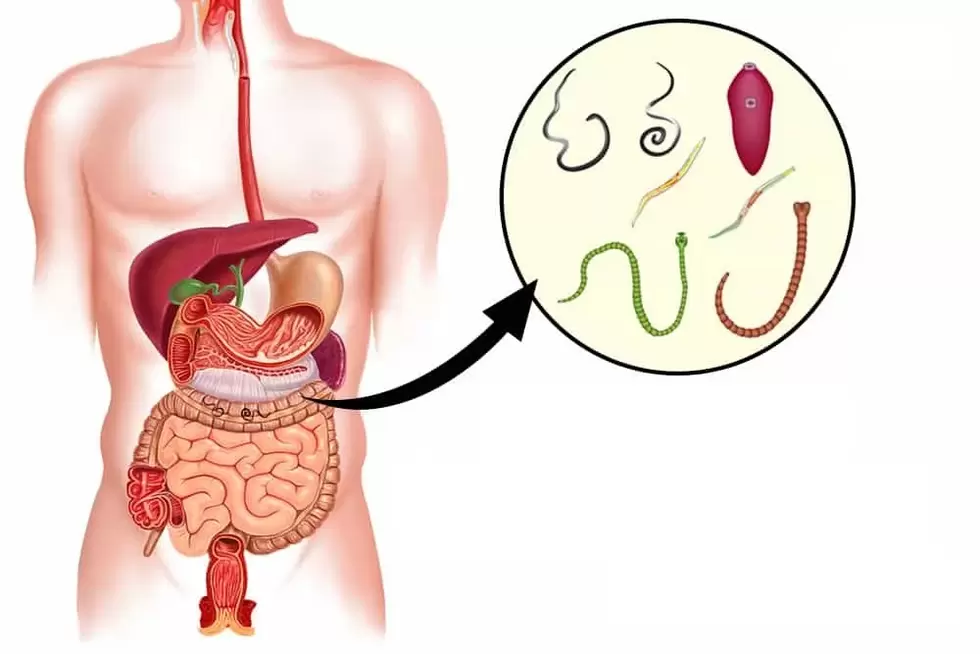Worms are parasitic worms in the human body or animal body. They adversely affect the whole body or a specific organ, which has a devastating effect on health.
Reasons
The disease manifests itself in different ways. This is affected by the type of worms, their location and number. Helminthiasis is often characterized by weight loss, physical weakness, dizziness and extreme irritability. If the worms are located in the intestine, it is accompanied by constipation, diarrhea, possible vomiting and nausea.
During parasitism in the liver - a cold skin tone and edema; appearance of cough and runny nose in the lungs. With any disease, activity and performance decrease. As for children, the child may have both mental and physical developmental disorders, stunting, puberty and memory problems. The disease is triggered by the entry of helminth eggs into the human body. We can get them from dirty fruits and vegetables, half-cooked meat and fish, and most are unwashed hands.

Symptoms
Depending on the species, a human worm infection can occur when eating poorly cooked animal meat infected with eggs and larvae, or when eggs and larvae enter the human body, which develops in the soil. Here they become adults.
The number of worms with a disease that has developed in the human body can be very large. Adult worms and eggs can be excreted in the feces, which is a key symptom in recognizing the cause of the disease. In addition, blood tests, sputum, etc. in hospitals. There are more sophisticated diagnostic methods. When infected with worms, it can be:
- general weakness and weakness;
- rapid fatigue, increase or decrease in appetite;
- nausea, vomiting, severe abdominal pain, rapid weight loss;
- diarrhea with the release of worms in the feces;
- itching in the anal area;
- sleep disorders.
Diagnostics
To determine how to treat worms, the pediatrician prescribes the following:
- general analysis of feces;
- general blood test;
- X-ray examination of the intestine;
- itching of the skin from the perianal region.
The following worms are most common in humans: pinworms, roundworms associated with roundworms, tapeworms (tapeworms) and various types of tapeworms (tapeworms). The main sources of infection are dirty hands, unwashed fruits and vegetables, untested foods, contaminated water and flies.
Treatment
The treatment required for worms includes:
- antiparasitic drugs;
- sorbents;
- enzymes;
- immunomodulators;
- hepatoprotectors.
If you do not determine in time how to get rid of worms, there is a risk of complications:
- jaundice;
- intestinal obstruction;
- pancreatitis;
- purulent skin lesions;
- anemia
Prophylaxis
To prevent the spread and spread of Ascaris infection, you should follow personal hygiene rules, wash your hands, vegetables and fruits thoroughly, and keep toilets clean. It is recommended to avoid the problem of how to remove worms in the future:
- to follow the rules of personal hygiene;
- wash products thoroughly before use;
- to carry out necessary heat treatment of meat, fish, seafood before eating;
- Keep an eye on children during play (to avoid getting objects in their mouths).






































